What to Look for When Selecting Greenville Alcohol Rehab Centers

Choosing an alcohol rehab in Greenville, SC, can be a major decision to make when struggling with alcohol addiction. There are many options available for treatment, but it is important to understand what to look for and what to expect from Greenville alcohol rehab centers.
Alcohol use and addiction can be influenced by many factors. In South Carolina, there is a high number of adults who admit to binge drinking. In a survey, 18.1% of adults who reported admitted to binge drinking, meaning they consumed four or more alcoholic beverages in a single sitting. These numbers also include those who consume more than eight drinks per week – showing that excessive alcohol use supports addiction among the population.
Alcohol addiction, also referred to as alcoholism or alcohol use disorder (AUD), represents a persistent condition marked by an intense desire for alcohol, impaired ability to manage consumption, and experiencing adverse emotional effects when abstaining from drinking. Multiple factors can influence the development of alcohol addiction, and certain signs may suggest someone is struggling with alcoholism. It's crucial to recognize that the severity of alcohol addiction can differ among individuals and may present with a variety of symptoms.
Causes of Alcohol Addiction
Genetics:
There is evidence to suggest that genetics play a significant role in predisposing individuals to alcohol addiction. People with a family history of alcoholism are at a higher risk of developing the disorder themselves.
Biological Factors:
Certain biological factors, such as differences in brain chemistry and neurotransmitter activity, can contribute to alcohol addiction. Chronic alcohol use can alter brain function and lead to dependence over time.
Environmental Influences:
Environmental factors, including upbringing, peer pressure, exposure to alcohol at an early age, and societal norms regarding alcohol consumption, can contribute to the development of alcohol addiction.
Psychological Factors:
Individuals with certain psychological conditions, such as depression, anxiety, trauma, or stress, may be more susceptible to alcohol addiction as they may use alcohol as a means of self-medication or coping with emotional distress.
Social and Cultural Factors:
Cultural attitudes toward alcohol, availability of alcohol, and social acceptance of heavy drinking can influence an individual’s drinking behavior and contribute to the development of addiction.
Personality Traits:
Certain personality traits, such as impulsivity, sensation-seeking behavior, low self-esteem, or a tendency toward risk-taking, may increase the likelihood of developing alcohol addiction.
Early Exposure To Alcohol:
Early initiation of alcohol use, particularly during adolescence when the brain is still developing, can increase the risk of developing alcohol addiction later in life.
Trauma and Adverse Life Experiences:
Traumatic events, abuse, neglect, or other adverse life experiences can contribute to the development of alcohol addiction as individuals may use alcohol as a means of coping with emotional pain or numbing distressing memories.
Social and Peer Influence:
Peer pressure and social influences from friends, family members, or social circles where heavy drinking is common can contribute to the normalization of alcohol use and increase the risk of addiction.
Stress and Coping Mechanisms:
High levels of stress, work pressure, relationship problems, or financial difficulties can lead individuals to turn to alcohol as a coping mechanism, eventually leading to dependence and addiction.
Signs of Alcohol Addiction
Increased Tolerance:
Needing to consume more alcohol over time to achieve the desired effect or experiencing diminished effects with continued use.
Withdrawal Symptoms:
Experiencing withdrawal symptoms when not drinking or attempting to cut down, including tremors, nausea, sweating, anxiety, irritability, insomnia, or seizures.
Loss of Control:
Inability to control or limit alcohol consumption, such as unsuccessful attempts to cut down or stop drinking despite repeated efforts.
Preoccupation with Alcohol:
Spending a significant amount of time thinking about, obtaining, consuming, or recovering from alcohol use, which may interfere with daily responsibilities and activities.
Neglecting Responsibilities:
Neglecting obligations at work, school, or home due to alcohol use, such as missing deadlines, skipping classes, or neglecting household chores and family responsibilities.
Continued Use Despite Consequences:
Persisting in alcohol use despite experiencing negative consequences, such as legal problems, relationship conflicts, financial difficulties, or health issues related to drinking.
Loss of interest:
Losing interest in activities or hobbies that were once enjoyable or engaging, as alcohol becomes the primary focus of attention and pleasure.
Isolation:
Withdrawing from social activities, hobbies, or social circles that do not involve alcohol, and preferring to drink alone or in secrecy to avoid judgment or confrontation.
Physical and Psychological Effects:
Experiencing physical symptoms such as blackouts, slurred speech, impaired coordination, or memory lapses, as well as psychological effects such as mood swings, depression, anxiety, or aggression.
Continued Drinking Despite Awareness:
Continuing to drink despite recognizing the negative impact of alcohol on physical health, mental well-being, relationships, or overall quality of life.
Attempts to Rationalize or Deny:
Making excuses for drinking behavior, rationalizing excessive alcohol use, or denying the severity of the problem when confronted by others or experiencing internal conflict.
Loss of Control Over Drinking Situations:
Being unable to predict or control drinking episodes, such as intending to have only one drink but ending up consuming much more.

To be properly diagnosed with alcohol addiction in Greenville, SC, you must consult with a healthcare professional or an addiction specialist. These professionals will conduct assessments – often including physical exams, psychological evaluations, and discussing alcohol use and patterns. Having a conclusive diagnosis helps to lay the groundwork for having a personalized treatment program designed for your individual needs.
Finding a Greenville detox center, also called an alcohol rehab center, can seem overwhelming, but there are many options available to meet and exceed your sobriety needs. It is essential to consider factors like accreditation, treatment methods, staff qualifications, amenities, and success rates before making the final decision on which rehab facility to attend. Doing thorough research and touring facilities can help individuals make the right decision to align with treatment goals.
At a Greenville alcohol detox center, individuals can expect a comprehensive and supportive environment focused on safely managing withdrawal symptoms and initiating the recovery process. Upon arrival, patients undergo a thorough assessment by medical professionals to determine the appropriate detoxification protocol based on their medical history, severity of alcohol dependence, and any co-occurring health conditions. The detox process is closely monitored by experienced staff who provide around-the-clock care, including medication management to alleviate withdrawal symptoms, hydration therapy, nutritional support, and emotional support.
In addition to medical care, detox centers often offer therapeutic interventions and counseling to address the psychological and emotional aspects of addiction. Throughout the detoxification process, patients receive education about addiction, coping strategies for managing cravings and triggers, and preparation for ongoing treatment. The goal of a Greenville alcohol detox center is to provide a safe and comfortable environment for individuals to detoxify from alcohol, stabilize physically and emotionally, and transition to the next phase of addiction treatment with a solid foundation for recovery.
Attending an alcohol rehab requires dedication, commitment, and perseverance. You will be expected to participate in rehab programs like therapy sessions, follow treatment protocols, and collaborate with healthcare professionals to achieve long-term sobriety. Having the support of your peers and loved ones can play a crucial role in this process.

Paying for alcohol rehab is a concern for many individuals looking to get sober. There are payment options available, like using insurance coverage, sliding fee scale payments based on income, and even crowdfunding opportunities for paying for alcohol rehab programs. Choosing the right financial arrangements to pay for treatment can ease the burden and make rehab accessible for those who need it.
The end of rehab marks the beginning of a new journey – a life of recovery and sobriety. After alcohol rehab, finding the right aftercare plan is important. Aftercare services, like ongoing therapy, support groups, and relapse prevention programs, help individuals maintain sobriety and overcome challenges that may come up during the post-rehab period. During this time, it is important to establish a strong support network and implement the coping strategies that were taught during rehab for long-term success.
Greenville alcohol rehab centers offer a variety of aftercare options, including sober living homes, outpatient counseling, 12-step programs, SMART Recovery, and alumni support groups. Actively participating in aftercare services reinforces the skills and strategies learned in rehab and provides ongoing support when transitioning back to daily life.
After attending alcohol rehab in Greenville, it might be necessary to seek additional support for alcohol addiction. This additional support may come in the form of educational programs, community-based initiatives, online forums, and helplines that are staffed by trained professionals. By seeking out these resources, you can learn valuable information, receive encouragement, and get guidance throughout the sobriety journey.
Greenville offers a variety of alcohol rehab programs, including inpatient/residential treatment, outpatient programs, detoxification services, medication-assisted treatment (MAT), and aftercare planning.
The most suitable alcohol rehab program depends on factors such as the severity of alcohol dependence, individual needs, treatment goals, and personal preferences. A thorough assessment by a healthcare professional can help determine the appropriate level of care.
Yes, reputable alcohol rehab centers in Greenville develop individualized treatment plans tailored to each patient's specific needs, addressing physical, psychological, and social aspects of alcohol addiction.
Alcohol rehab programs in Greenville may incorporate various evidence-based therapies such as cognitive-behavioral therapy (CBT), group therapy, family therapy, motivational interviewing, and experiential therapies to address underlying issues and promote recovery.
Many alcohol rehab centers in Greenville accept health insurance plans, including private insurance and Medicaid. It's essential to verify coverage with both the treatment center and your insurance provider before starting treatment.
Greenville alcohol rehab centers often provide aftercare planning and support services, including outpatient counseling, relapse prevention programs, sober living arrangements, and participation in support groups such as Alcoholics Anonymous (AA).

Finding the right alcohol rehab in Greenville, SC, involves carefully considering treatment options, payment options, and post-rehab support. Understanding what to look for in a rehab center, how to finance treatment, and what to expect during and after rehab can help you make informed decisions and start on a path of sobriety. The right resources and support are crucial to overcoming alcohol addiction and living a full and sober life.

